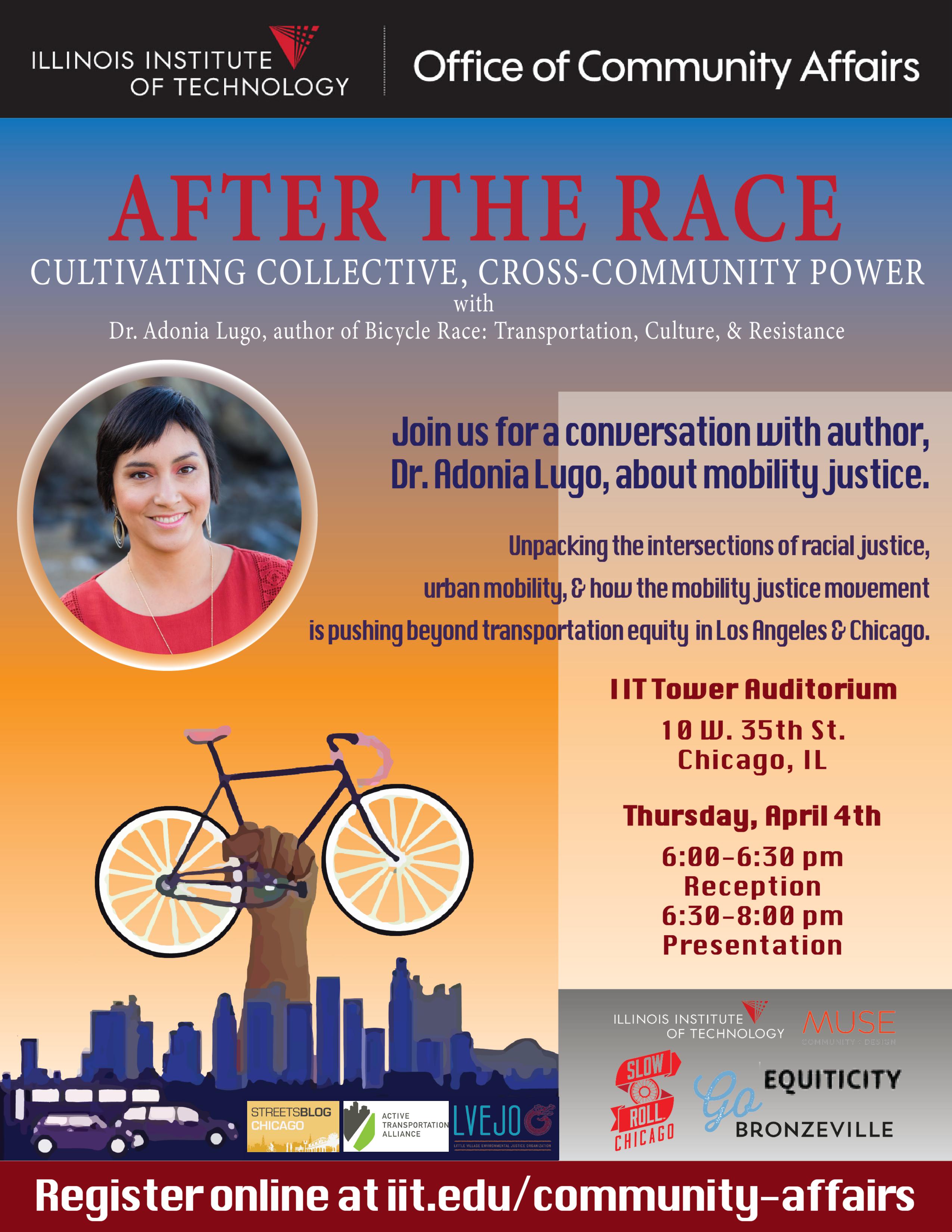As election season winds down in Chicago, it remains to be seen how the next mayor will address key issues such as transportation. This Thursday, a coalition of organizations, including Streetsblog Chicago, are co-sponsoring the event After the Race: Cultivating Collective, Cross-Community Power with Dr. Adonia Lugo, author of Bicycle/Race: Transportation, Culture, and Resistance.
It will be taking place at the IIT Tower Auditorium, 10 W. 35th Street, from 6-8pm. Other co-sponsoring organizations include Muse Community and Design, Slow Roll Chicago, Go Bronzeville, Equiticity, Little Village Environmental Justice Organization, and the Active Transportation Alliance.
Lugo has done mobility justice work in several U.S. cities. From 2008-2011, she lived car-free in LA while studying and organizing bicycle projects. She later helped launch CicLAvia, a Latin American-style ciclovía event in which streets are opened for car-free walking, biking, and skating. Lugo cofounded the City of Lights/Ciudad de Luces project at the Los Angeles County Bicycle Coalition that connected day labor cyclists to bike advocacy. This effort would lead to the founding of Multicultural Communities for Mobility, which recently became People for Mobility Justice. Other work includes conducting interviews for the Seattle Bike Project and managing the Equity Initiative at the League of American Bicyclists (in her book, she details why she decided to leave). Lugo is also a co-founder of The Untokening, a multiracial collective that centers the lived experiences of marginalized communities to address mobility justice issues.
In 2018, Lugo published Bicycle/Race, which seeks to unpack how racial justice ties into the bicycling movement, particularly how we fall short when we prioritize infrastructure over people. Lugo discusses growing up in Orange County and her path to becoming a bicycling advocate and anthropologist.
Thursday's conversation is very timely, since it will take place two days after Chicago elects its first female mayor of color. It's a great opportunity to reevaluate how we want to do work around mobility justice, and what voices are critical to have at the table in transportation planning discussions.





